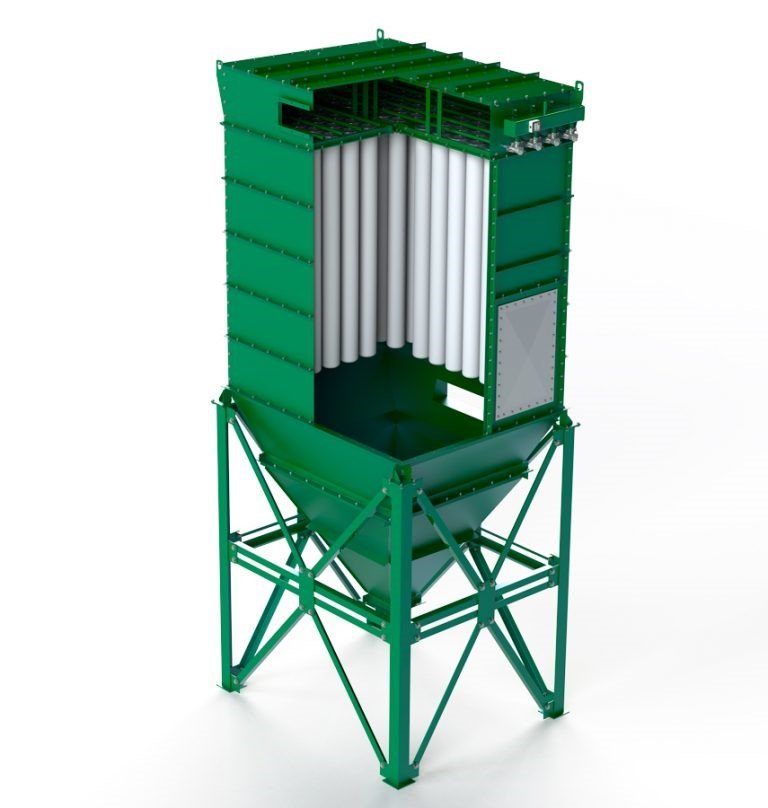
Industrial Filtration Systems: Improving Process Efficiency and Quality
Industrial filtration systems are important components of various manufacturing processes and utilities, providing efficient removal of contaminants from liquids and gases. From baghouse filters to cartridge filters to membrane filtration systems, all of these technologies play a critical role in maintaining product quality, ensuring regulatory compliance, and ensuring equipment integrity. In this article, we will look at the features, applications, and benefits of various industrial filtration systems.
1. Bag filters:
Bag filters are widely used in industry to filter liquids and gases. They consist of a porous bag or fabric sleeve that traps particulates and contaminants as the liquid passes through. Key features and benefits of bag filters include:
- Versatility: Bag filters are suitable for a wide range of applications, including water treatment, chemical processing, oil and gas processing and pharmaceutical manufacturing.
- Cost-effective: Bag filters offer a cost-effective filtration solution with relatively low initial investment and operating costs compared to other filtration technologies.
- Easy to maintain: Bag filters are easy to install, replace and maintain with simple media replacement procedures that minimize downtime and labor.
- High Soil Holding Capacity: Bag filters are capable of retaining large amounts of contaminants and particulates without compromising filtration efficiency, making them ideal for variable particle load applications.
- Single-use or reusable options: Bag filters are available in single-use and reusable configurations, providing flexibility in selecting the most appropriate option based on process requirements and cost considerations.
2. Cartridge filters:
Cartridge filters consist of a cylindrical housing containing a replaceable cartridge element containing filter media. They are commonly used for fine filtration of liquids in industrial processes. Key features and benefits of cartridge filters include:
- Fine Filtration: Cartridge filters provide precise filtration of fine particles and contaminants, ensuring high product quality and product purity in applications such as pharmaceutical, electronics and food processing.
- Compact Design: Cartridge filters take up little space and are modular in design, making them suitable for installations with limited space or where multiple stages of filtration are required.
- Variety of Filter Media Options: Cartridge filters are available with a variety of filter media options, including depth filters, pleated filters and membrane filters, allowing them to be customized based on process requirements and fluid properties.
- Easy to install and replace: Cartridge filters are easy to install and replace with quick-change mechanisms that minimize downtime and maintenance effort.
- Consistent Performance: Cartridge filters provide consistent filtration performance over time, predictable removal efficiency, and pressure drop characteristics that provide consistent process conditions.
3. Membrane filtration systems:
Membrane filtration systems use semipermeable membranes to selectively separate particles, ions, and macromolecules from liquids and gases based on size, shape, and molecular weight. Key features and benefits of membrane filtration systems include:
- High Purity Filtration: Membrane filtration systems provide high purity filtration, removing contaminants such as bacteria, viruses and dissolved solids from water, beverages, pharmaceuticals and industrial process streams.
- Selective Separation: Membrane filters can be designed with varying pore sizes and molecular weight limits to achieve selective separation of specific components, allowing precise control of product quality and composition.
- Reverse Osmosis (RO) and Ultrafiltration (UF) Options: Membrane filtration systems include a variety of technologies including reverse osmosis (RO), nanofiltration (NF), ultrafiltration (UF) and microfiltration (MF ), each tailored to specific applications and separation requirements.
- Water Treatment and Desalination: Membrane filtration systems are widely used for water treatment, wastewater recycling and desalination, providing a sustainable solution for fresh water production and resource conservation.
- Energy efficiency: Membrane filtration processes require less energy than traditional separation methods, making them environmentally friendly and cost-effective solutions for industrial filtration.
Conclusion:
Industrial filtration systems, including bag filters, cartridge filters and membrane filtration systems, are integral components of modern manufacturing processes and utilities, providing essential cleaning and separation capabilities to a wide range of industries. By effectively removing contaminants from liquids and gases, these technologies help ensure product quality, process efficiency and regulatory compliance while minimizing environmental impact and operating costs. As industries continue to evolve and demand higher standards of cleanliness, reliability and sustainability, the implementation of advanced industrial filtration solutions will continue to be important to address emerging challenges and drive innovation in the global marketplace.






